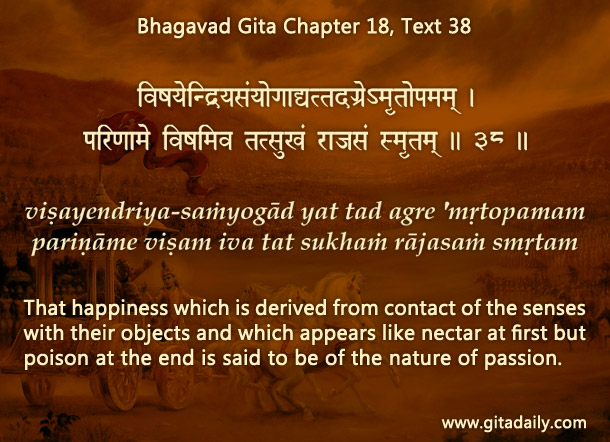Imagination is a basic human faculty that is value-neutral; it can be used both negatively or positively. Our education is meant to increase the positive use of our imagination. For example, we may fantasize about driving very fast and enjoying the thrill. But during our education to get a driving license, we may read about the consequences of excessively fast driving – how a little skid can cause the car to rush off the road and run over a passerby, causing death.
When education thus informs our imagination, thereafter whenever the urge to drive fast comes up within us, instead of fantasizing about the thrill of driving superfast, our imagination will envision the terrible consequences of rash driving, thereby checking ourselves from foolhardy driving.
Similarly, when we start practicing spiritual life and regulating our worldly indulgences, our imagination may by default go in worldly directions, fantasizing about enjoying sensual pleasures and making us feel deprived.
But instead if we study the Bhagavad-gita and let its philosophical knowledge educate our imagination, then we will contemplate how sensuality leads to misery: how indulgence makes us addicted and distressed, how the karmic consequences keep us trapped in distressful material existence and how sensual obsession deprives us of the supreme joy of absorption in Krishna. The Gita (18.38) cautions that sensual pleasures that taste like nectar initially taste like poison eventually.
Additionally, Gita wisdom helps us channel our imagination positively too. By understanding Krishna’s all-attractiveness philosophically and relishing glimpses of it practically by our bhakti-yoga practice, we can start contemplating how wonderful it would be to be ecstatically absorbed in Krishna, to be filled with thoughts and Krishna, to be joyfully flooded with insights coming from Krishna’s message and about Krishna’s pastimes, then that imagination will work for us, energizing us in our positive, purposeful activities.
To know more about this verse, please click on the image
Explanation of article:
Podcast:




Leave A Comment